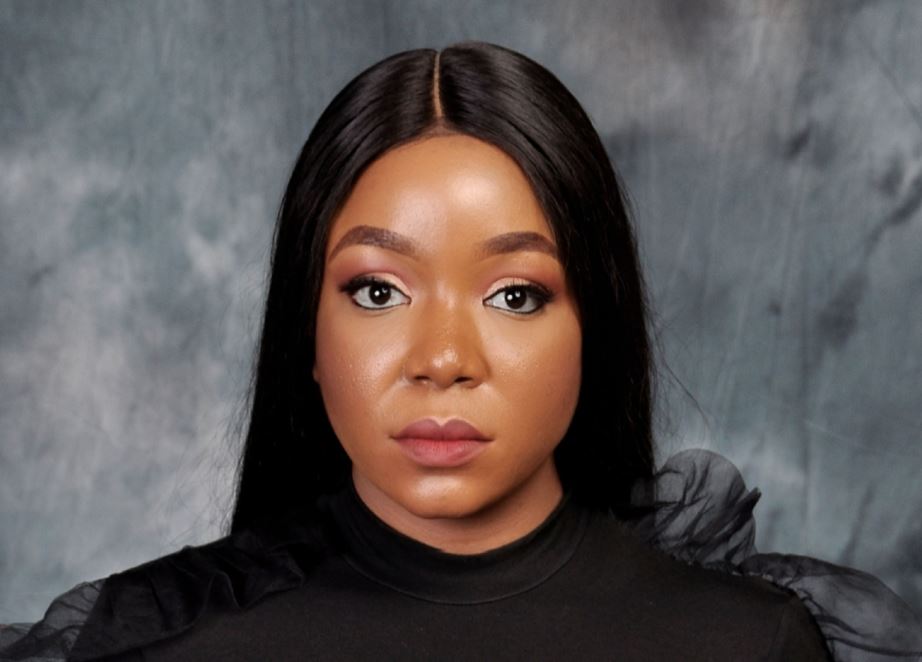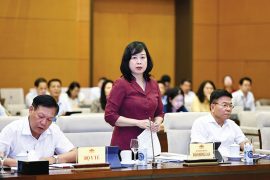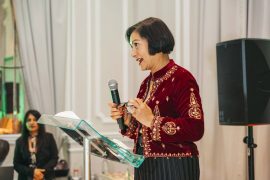By Khadija Yusra Sanusi
In July 2021, Dinidari Foundation – which envisions a society where fundamental rights of vulnerable women and youth are upheld – hosted a 4-hour conference titled From the Streets to Parliament: Strengthening Women’s Political Power in Nigeria. The conference was curated by Abuja Discourse, a platform coordinated by the foundation to curate conversations about policy and legislative-driven solutions to different issues including women, youths, electoral reforms, access to justice, bills, and sexual harassment.
The Executive Director of the foundation Ndi Kato holds a degree in Mass Communication and is a Nigerian politician; she is a member of PDP’s (Peoples Democratic Party) strategy review and Interparty committee. When speaking to African Leadership Magazine, she explained that her motivation to join politics was wanting to be an active part of the change. “I want to function. I want to do a lot. I want to bring new ideas to the table. I want to do many things,” she told the magazine. Now, what she wants to do is ensure that young women are seen and heard.
With Streets to Parliament, Kato wanted to ensure that young, so-called stubborn women are seen and heard instead of silenced and made pariahs in the society. She believes that Nigeria needs to see and hear these young, determined women and conferences like this are the best ways to achieve that mission. With the conference and beyond, she hopes to give women platforms to discuss politics; because with that, viewers will start projecting and seeing women as powerful solution givers. “I think that imagery matters. I think that the visibility and loudness of our voices matter,” Kato told African Leadership Magazine. “It normalizes our presence. We can’t disappear from the entire conversation.” There is currently a handful of women moderating conversations about politics that are not gender-related in Nigeria, such as Ijeoma Osamor, the political correspondent, newscaster and presenter of Democracy Today on AIT channel and Maupe Ogun, media personnel, journalist and the co-anchor of Sunrise Daily on Channels TV. “But anchors are not discussants,” Kato said. “They are moderating, not discussing.”
Young, stubborn women have always taken charge; they have shown growth and leadership and brought necessary change to society. They have never shied away from taking to the streets to lead peaceful protests or use their platforms to bring about essential change – especially when the conversations to be had are on sexual abuse and harassment. The activism of young, stubborn women is well documented. After popularising the #MeToo movement in the United States, a group of young women domesticated the international campaign to kick-start #ArewaMeToo, inspiring people from conservative northern Nigeria to speak up against sexual abuse and harassment. Some months later, architect Damilola Marcus inspired hundreds of peaceful protestors to take to the streets in the name of #MarketMarch, seeking to de-normalize sexual harassment in Nigerian markets and stand against a culture of customers being stroked, grabbed, groped and/or harassed without their consent in the markets. Kato would like to see this vigour harnessed towards politics.
There is a need for women to discuss, to be active participants in important discussions about politics – whether it’s gender-related or not. In the future, Kato hopes to create different platforms that amplify many young women to be seen and heard across different paradigms within political spaces. She wants to start conversations towards women’s wings in political parties, affirmative actions, and young, stubborn women “see things to the end” by holding the government accountable for its actions.
The end goal is to have young, stubborn, rebellious women in decision-making spaces. Kato believes that women are better equipped for leadership at a time like this, that we are better equipped to keep countries sane because of our upbringing. She told African Leadership Magazine: “The upbringing of a girl is different from her brother’s. I wish we were raised with the selfishness that men were raised with. However, we have found ourselves at this crossroad and here women are the most equipped. At this place, we have found ourselves, selfless people – who have been raised to be selfless, who have been raised to think of every scenario before they take action – are empathetic thinkers; it makes us look at all perspectives. That’s who women are. I think it’s time we get the chance to enter there and do something.” And if we are unable to get there, then we must have representation.
Representation in political, decision-making spaces matters and is currently understood as local government chairmen or members of the House of representatives. “But we need representation and not just for the sake of it,” Kato told African Leadership Magazine, arguing that we need to start looking at representation through the lens of identity. Otherwise, nobody will make a case for the marginalized members of the society – for women, for Muslims, for people living with disabilities. Kato argues that there are people in charge of these identities on decision-making tables and if these people are not representatives of said identities, they would not be able to understand the problems being faced and the solutions needed to tackle them.
In Nigeria, most of the people on the decision-making tables are male; so, Kato believes that as Nigerian men have failed us on every level. This is not because they are vindictive or actively trying to fail these identities; it is that they are unable to relate to the lived realities of the custodians of these identities and they refuse to create space for them on decision-making tables. If a proposed bill affects women, then women need to be part of the decision-making. Excluding them will lead to non-inclusive laws. Kato cites the Child Right Act and the Gender and Equal Opportunities Bill, explaining that even within them, one could easily find clauses that endanger the girl child; “and you would know that there are no women in that room,” she said, adding that “men cannot relate to the issues we go through. If they could, there would be a permanent healthcare centre every kilometre in Nigeria because giving birth in Nigeria to Nigerian woman is like playing Russian Roulette; it’s a dangerous thing.” But these conversations aren’t discussed in the national assembly because the people making the decisions are not in danger of dying from childbirth. Representation matters because men cannot relate to the issues that plague women and people who aren’t living with disabilities cannot understand the reality of living with one or several disabilities. It is when your identity is being properly and accurately represented on decision-making tables that you will be made a priority for the people making the laws; because as they are making the laws, they know how it affects them, they know what, how, where, and when something needs to be done.
Ndi Kato told African Leadership Magazine that she built her career on being functional, a career of bringing ideas and solutions to the tables and of wanting to do the work. This is true for many women. But unfortunately, it’s hard for African women to actualize their visions, to take these ideas and turn them into reality because the doors to the decision-making rooms are often shut for women; we are locked out. Our only hope is for a generation of unruly, stubborn rebels to work together to break the door down.





Comments are closed.